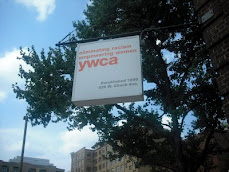I’ve been talking to people about this subject lately and received a variety of responses. (Note: These were just casual conversations, not a study.) One person said it’s all about ego and nothing to do with sexism. A few think women are doing the same things but simply aren’t getting caught. I’m figuring those folks were talking more about cheating than prostitution and rape, and, yes, there are still far more men in power than women, so that accounts for at least some of the imbalance, but if loads of women really are behaving as badly, why aren’t they getting caught too?
Most respondents think that powerful men and powerful women behave quite differently—for the most part. I tend to agree, but not because I think there is necessarily a biological cause for this difference. Rather, I think men and women experience power differently because of the ways we are socialized and because we have yet to achieve full equality across the board.
In general, women still have to work harder to get to the top, and once they get there, their positions are often less tenable. I suspect they are less likely to take that power for granted. Sheryl Gay Stolberg writes in The New York Times, “Women have different reasons for running [for office], are more reluctant to do so and, because there are so few of them in politics, are acutely aware of the scrutiny they draw—all of which seems to lead to differences in the way they handle their jobs once elected.”
Women are judged more harshly for their sexual proclivities, so they have more to lose. (If you think double standards like this don’t exist anymore, then welcome to Feminism 101.) As author Erica Jong says, “Women know they won't be protected and that they'll be exposed. And it has to do with how much power men have in society and how little women have.”
We can’t talk about power without talking about ego. Dutch psychologist Joris Lammers, who has studied the relationship between power and confidence, says, “Power leads to this disinhibited sense that you can get what you want and should take risks to get it." As at least one person I spoke with mentioned, narcissism definitely plays a role. But can we blame it all on that and take sexism out of the equation? I’m not so sure. What does it mean when someone spends much of their public life fighting for human rights but treats women like objects in private? Is this not a reflection of institutionalized sexism?
Perhaps we spend too much time worrying about the personal lives of politicians and others in the public eye, but when their personal lives reveal behaviors that demean women—and I’m not talking about simple cheating (men and women cheat in almost equal numbers) but the deplorable actions listed above—I don’t want them making decisions about our economy, our laws, our lives. I’m sure many of these men would maintain that they are not sexist, that they believe in equal opportunity and even actively support it, but when their private actions are fundamentally sexist, I would argue that they are too.
We live in a society that not only tolerates but still promotes a “boys will be boys” attitude. Men in power are often expected to treat women this way. Many powerful men are invited to cheat, introduced to prostitution rings, encouraged to exploit women. This has been the case for thousands of years. It’s insulting to men and demeaning to women. But the fact that we now talk about it openly means it’s changing, however slowly.
What can you do to help it along? Men, pledge to treat women with respect. Recognize that what may be fueling your ego may also be devaluing women. Women, keep fighting for power and don’t let it go to your head.
If you’re a woman in a position of power, we would love to hear your thoughts.
--Sara Baker, YWCA Director of Women's Advocacy and Written Communications
 Sara Baker holds an MA in English with Writing Concentration from the University of Tennessee and a BA in English and Religion from Maryville College. Her lifelong commitment to women's issues includes volunteer work with the Alliance for International Women's Rights, American Association of University Women, National Conference on Community and Justice, National Network of Presbyterian College Women, University of Tennessee Women's Coordinating Council, University of Swansea Club W, and Maryville College Sisters in Spirit. Sara has studied African American women's literature, women's roles in world religions, and the status of women in North Indian culture. Through her work at the YWCA, she researches women's rights, violence against women, women and poverty, and girl empowerment.
Sara Baker holds an MA in English with Writing Concentration from the University of Tennessee and a BA in English and Religion from Maryville College. Her lifelong commitment to women's issues includes volunteer work with the Alliance for International Women's Rights, American Association of University Women, National Conference on Community and Justice, National Network of Presbyterian College Women, University of Tennessee Women's Coordinating Council, University of Swansea Club W, and Maryville College Sisters in Spirit. Sara has studied African American women's literature, women's roles in world religions, and the status of women in North Indian culture. Through her work at the YWCA, she researches women's rights, violence against women, women and poverty, and girl empowerment.
